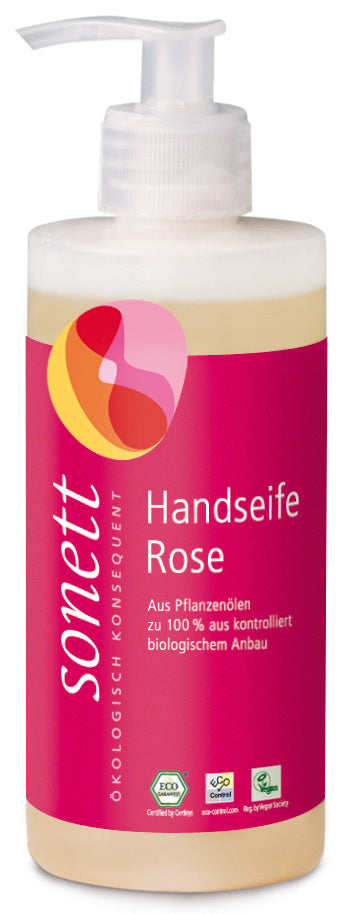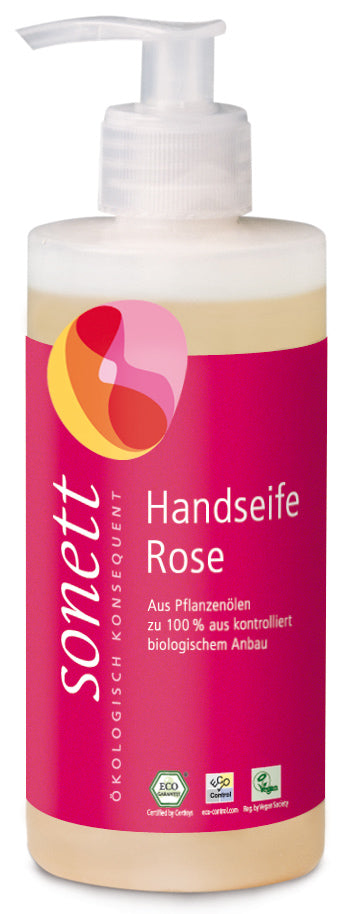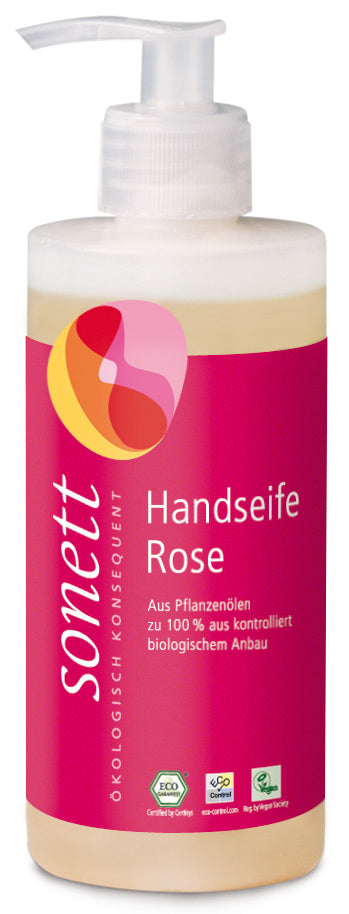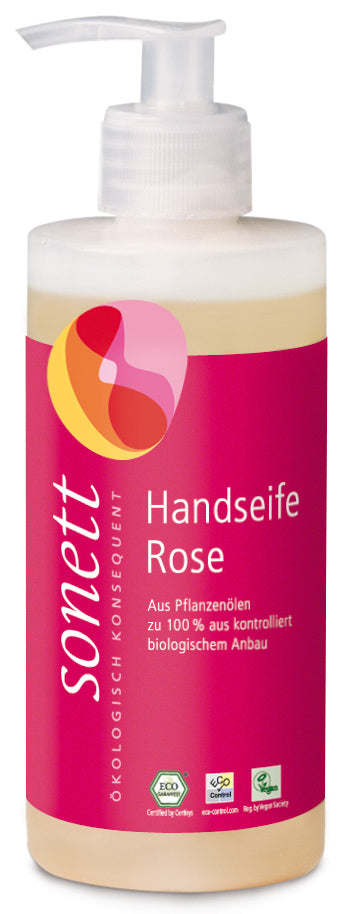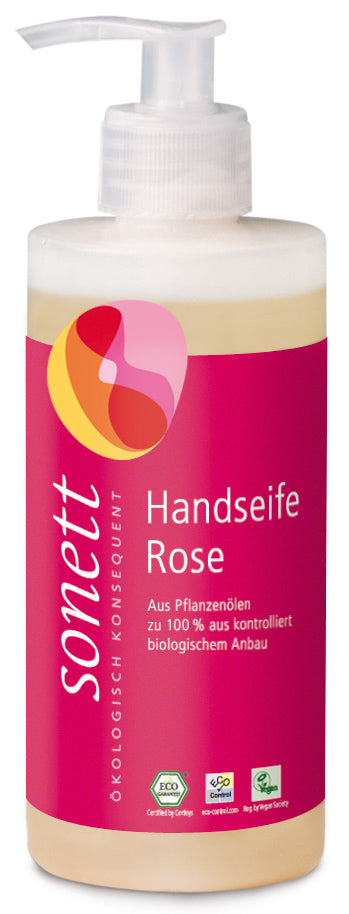Hand Soap Rose
incl. VAT - Shipping and discounts are calculated at checkout
Couldn't load pickup availability
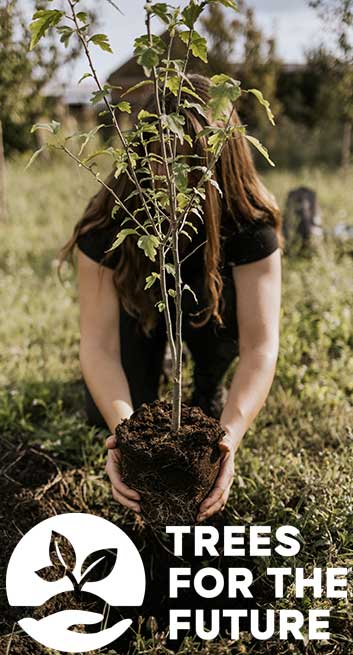
Mats become trees
With the purchase of a YOGISTAR you support tree plantations in Africa
Product declaration:
Soap made from olive oil from controlled organic / biodynamic cultivation >30%
Soap made from coconut oil from controlled organic cultivation 15–30%
Sugar surfactant conventional 5–15%
Vegetable alcohol (ethanol), conventional 1–5%
Vegetable glycerin from certified organic cultivation 1–5%
Rose hydrolate of the Damask rose from controlled biological sources.
Cultivation 1–5%
Citrate conventional <1%
Essential oils from palmarosa, rose geranium, lavender, lemongrass and balsamic additives from biologically-dyn./cont. biological cultivation/wild collection <1%
Gurjun Balsam <1%
Water swirled to 100%
Ingredients (INCI):
Aqua, Potassium Olivate*, Potassium Cocoate*, Alkylpolyglucoside, Alcohol, Glycerin*, Citrate, Rosa damascena extract*, Fragrance (Perfume)*: Cymbopogon martinii oil* (contains Geraniol*); Pelargonium graveoleus oil* (contains geraniol*, citronellol*), Lavandula hybrida oil* (contains linalool*), Cymbopogon flexuosus oil* (contains citral*), Balsamum Dipterocarpi
*certified organically grown
Technical data:
Density: (20 °C) approx. 1.02 g / cm³
pH value: undiluted approx. 8.5–9.5
Certification:
Eco guarantee
CSE
Vegan Society
Ecology:
Biodegradation: Soap made from vegetable oils has the unique property of combining with the lime that is always present in wastewater immediately after use. This means that the soap neutralizes its surface-active effect (primary degradation). This primary degradation takes place within a few hours. The lime soap is then 100% broken down by microorganisms into carbon dioxide and water (secondary degradation). Ethanol is reintegrated into the natural cycle within a few hours. In addition to the natural glycerin that is released from the oils during saponification, we also use vegetable glycerin, which binds the skin's moisture. During the production process for sugar surfactants, parts of the plant-based raw materials, such as starch, sugar and fat, are removed, but their natural structure is completely preserved. It is therefore relatively easy for the microorganisms to break down these surfactants quickly and completely to 100%. According to the OECD, soap and sugar surfactants are considered to be easily biodegradable.
- Manufacturer Sonett GmbH, Mistelweg 1, 88693 Deggenhausen - Germany, www.sonett.eu
- Storage information If possible, store between 10 and 25 °C. Short-term temperature drops or increases are possible without damaging the product.
- Weight 1.08 kg
Yoga teacher discount
Your benefit as a yoga teacher: Receive our 10% yoga teacher discount. More info
Personalise your Yoga mat
Make your Yoga mat unmistakable by having it embroidered with elegant lettering. More info
Payment & Security
Payment methods
We process your payment information securely and encrypted according to the highest standards so that you can shop relaxed and safely.

